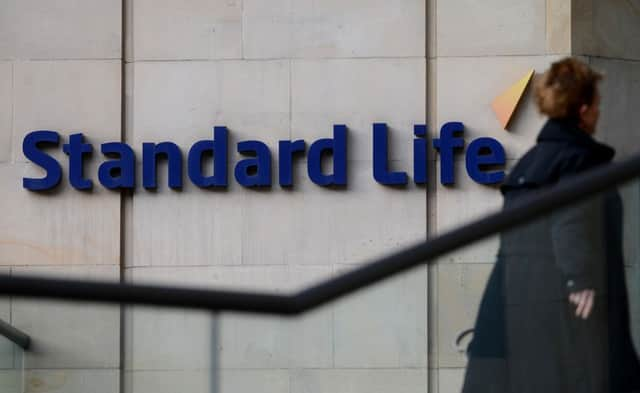Comment: A warning from Standard Life amid the glee


What could possibly spoil this cloudless blue sky for Scots savers and investors? Only this: a dense Scottish haar of tax complexity and confusion, and one that’s rolling in fast.
First indications of trouble ahead came with a report on Saturday that Edinburgh-based pensions and asset management giant Standard Life was preparing a “coded warning” on the dangers of Scotland’s tax regime diverging from the rest of the UK as business people ponder the consequentials of the SNP’s landslide victory.
Advertisement
Hide AdAdvertisement
Hide AdThese warnings may soon prove to be less coded if reports prove true that Conservative strategists are planning a “full fiscal autonomy” offer to Scotland in the first 100 days: a political device to wrong-foot the SNP but one that could backfire badly for Scots business and finance.
It all seems wearisomely familiar to the apprehensions voiced in the approach to September’s independence referendum, only with this big difference: changes under the 2012 Scotland Act are already in train, and little time is likely to be lost in driving through the extra tax and borrowing powers proposed by the Smith Commission.
Several problems now present themselves. First, how can the Scottish and UK administrations avoid a mismatched timing in the implementation of changes to tax levels and bands?
With the two administrations diametrically opposed in economic and fiscal policy, how will Scottish taxpayers react if significant differences open up between two neighbouring fiscal systems? “Behavioural response” could inject major uncertainty when calculating revenues raised in Scotland.
What will be the interest rate attached to Scottish government borrowing – and who will set this? Will it continue to be the Bank of England or a Scottish loans authority? Who will police this system? And not least of the problems will be how the taxation of savings and investments in a fiscally autonomous Scotland can be kept separate and administered as a reserved matter. If income tax rates and levels are to diverge to any significant degree – and the SNP has set course on a markedly pro-public spending, high-tax, “anti-austerity” agenda – what of attempts by Scots businesses to seek to protect higher-paid employees from measures that could prove a real barrier to recruitment and staff retention?
What happens if some seek to avoid these higher rates by rewarding employees in the form of profit-sharing, generous payments into pension schemes that can be quickly withdrawn, or dividend or capital distributions rather than PAYE income?
Central to Standard Life’s concerns is the imperative of retaining a single market in financial services across the UK. Without this, every firm in the sector in Scotland will be in trouble as the vast majority of their policyholders and customers are based outwith Scotland – indeed, mostly in England. This is why the taxation of savings and investments was to be retained as a reserved matter determined at UK level. But how will that hold in practice without prejudice to the Scottish administration’s revenue targets?
Prompt responses will need to be provided from Standard Life as it faces shareholders at tomorrow’s annual meeting at the Edinburgh International Conference Centre.
Advertisement
Hide AdAdvertisement
Hide AdAnother reason for prompt attention surrounds the timing of the introduction of two streams of legislation – the new Scottish tax rate under the 2012 Scotland Act, which could be implemented in April 2016, and the Smith proposals. No time- table has been set for these. But much of the Scottish Government’s draft budget in December of this year could be shaped by the expectation of these powers becoming “live” in 2016-17.
Owen Kelly, outgoing chief executive of Scottish Financial Enterprise, has warned that a wholesale transfer of tax powers would likely have “clear consequences for business…They’d have to serve two separate markets that would be more costly for customers.”
As was the case last year, most firms are reluctant to publicly voice their concerns. Many suffered a capital outflow last year as customers switched to London-based institutions. The danger now is that matters will proceed without a full public acknowledgement of problems and consequences while customers reach their own conclusions and resort to “behavioural response” on a significant scale.
A cloudless sky? A move of capital and personnel out of Scotland in the next two years is no more damaging than when done silently and invisibly through the approaching haar.